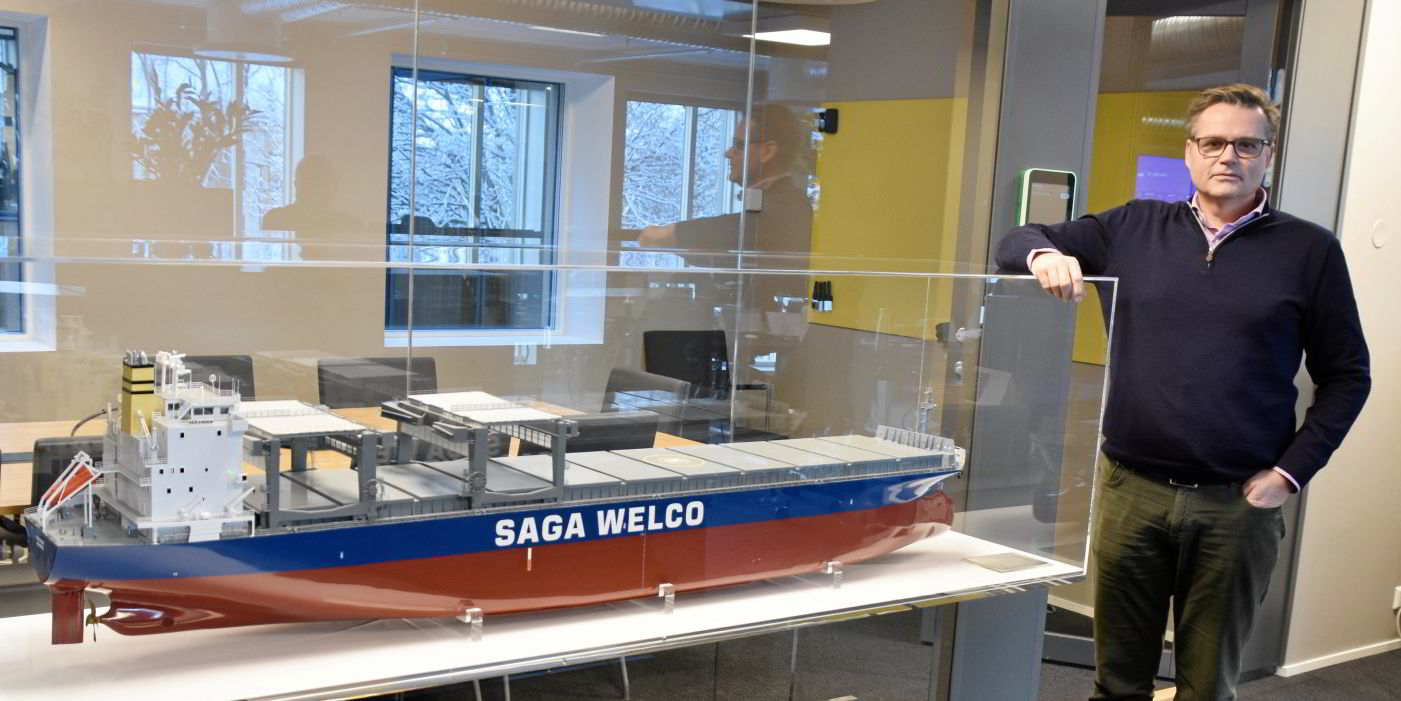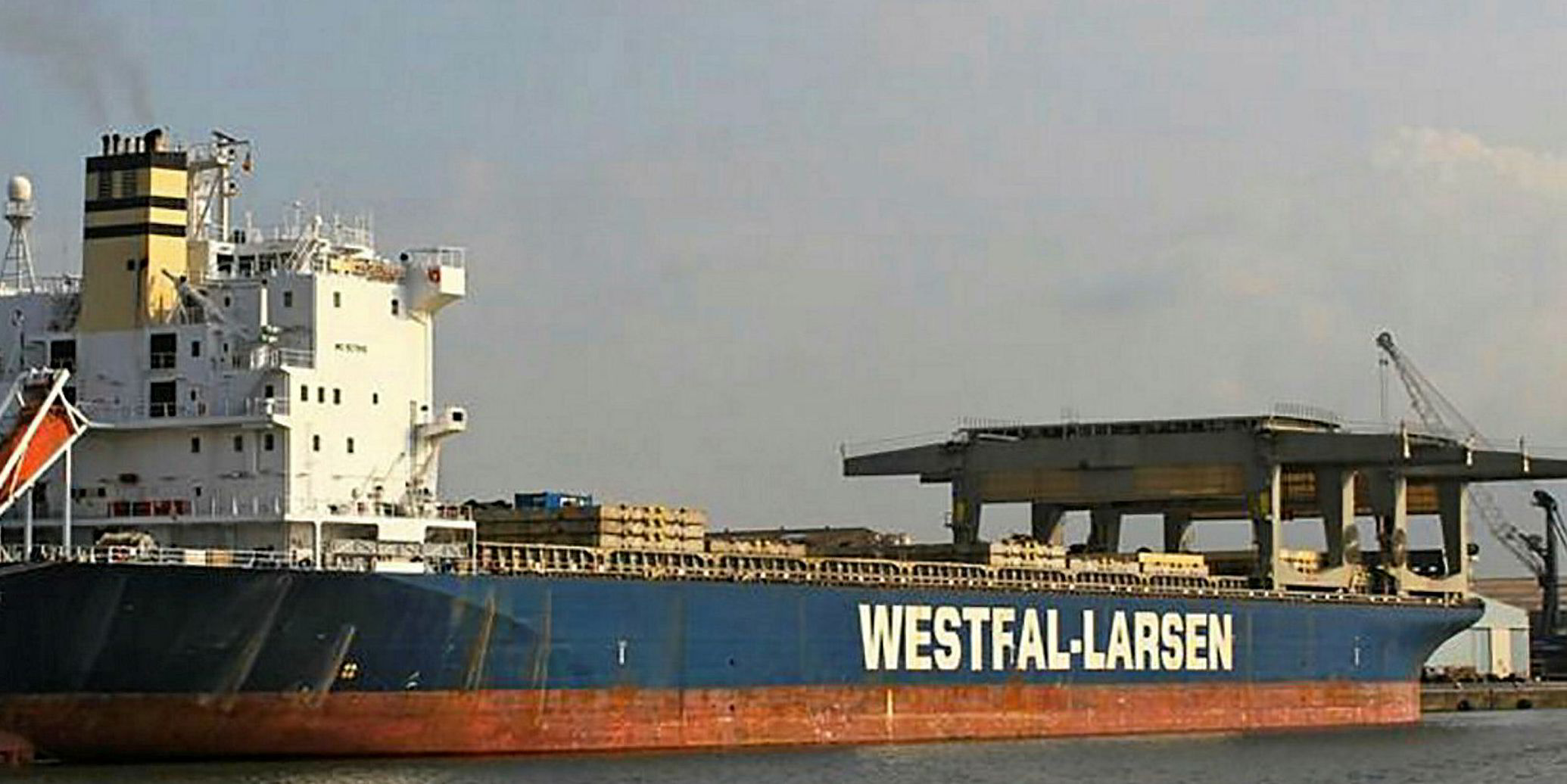Japanese fronthaul plus Norwegian backhaul is the business formula that has driven the forestry products pool Saga Welco and its forerunner companies for more than 30 years.
Officials of the Tonsberg-based pool operator and its Japanese co-owner gave roughly that as an explanation of NYK Line’s intercontinental cooperation in open-hatch bulkers. Under different names and with different Norwegian partners over the years, the formula has been working since 1991.
Today, Saga Welco with a chartering staff of about 10 in Tonsberg and offices on four continents, runs 49 specialised and highly uniform open-hatch ships from headquarters that look down on the centre of the historical shipowning town.
Saga Welco is owned 50/50 by NYK through its Tonsberg-based Saga Shipholding subsidiary, and by Bergen-based Westfal-Larsen, which has run open-hatch bulkers since they were invented in the 1960s. The Saga Welco pool tonnage is also all supplied by Saga Shipholding and Westfal-Larsen through its Masterbulk affiliate. Some of the Saga Shipholding tonnage is on time charter from former Norwegian partner Hesnes Shipping.
Saga Welco represents both sides equally, and maintains an operational distance from Saga Shipholding downstairs.
The three companies also have different ideas about publicity, with private shipowning partner Westfal-Larsen cordially but firmly declining to speak at all for this profile, NYK-controlled shipowning partner Saga Shipholding speaking rather freely, and pool operator Saga Welco steering a middle course, answering questions about chartering matters largely by pointing to a brochure available on its website.
In a visit with TradeWinds, Saga Welco chief executive Fumitake Shishido and senior vice president Trond Moe Hanssen declined to go into detail about chartering and especially changing percentage shares in the backhaul business and the growing share of project cargo.
But Hanssen underscored that the company sees itself as “an industrial carrier more than a breakbulk carrier”, with a business philosophy that emphasises long-term relationships, also on the backhaul side.
“We have a lot of Japanese culture in our veins, with old customers that we like to take care of,” said Hanssen.
Downstairs in the same building, Saga Shipholding chairman and managing director Katsuhito Yamane underscored the separateness of the shipowning and ship chartering businesses.
“Our main task in this company is ship management, which we oversee through Anglo-Eastern in Hong Kong, and cost management,” he said. “And also negotiating with the other owner about how to operate the pool.”
That part is a matter of balancing the sometimes conflicting interests of fronthaul and backhaul chartering teams.
NYK typically favours a conservative chartering strategy that keeps the share of fronthaul cargo high for the sake of stable returns.
“But Westfal-Larsen may accept more volatility of the market and may have a different opinion,” Yamane told TradeWinds.
The bosses back home do not steer with a heavy hand, however.
“NYK is a stock-listed company and it wants stable returns, but it does not make the decisions about the open-hatch business,” he said. “All the chartering knowledge is with Saga Welco.”




